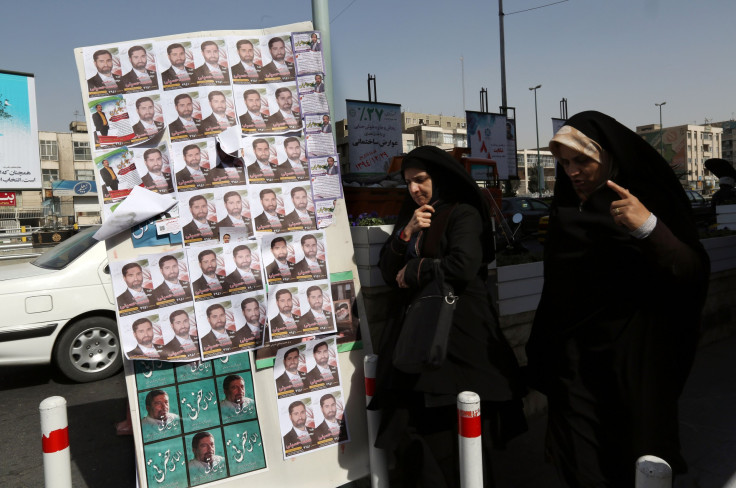Despite Diplomatic Breakthroughs, A Bad Economy Looms Over Iranians’ Election Spirit

After agreeing to a landmark nuclear deal with the United States and other world powers, which provided for a path to re-entering the global economy, Iran’s leadership and its people expected a financial boost. But that hasn’t materialized, which is unwelcome news for Iran’s reformist president, Hassan Rouhani, and his political allies, as voters head to the polls on Feb. 26.
Iran will elect 290 members of parliament and 88 senior clerics for the Assembly of Experts, the body responsible for picking the country’s next supreme leader. But according to the Financial Times, the economic doom and gloom has suppressed enthusiasm for an election that comes at what should be a pivotal time for the country.
Although the Iran nuclear deal was signed in July, economic sanctions were lifted only last month. Western companies have been keen to take advantage. In late January, Rouhani led a delegation of 120 Iranian entrepreneurs and government officials to Paris and Rome in the hope of drumming up business. On the trip, Iran announced a deal to purchase 118 planes from Airbus, and earlier this month, the U.S. government cleared Boeing to start negotiating with Iran.
But other than an oil shipment to Europe on Feb. 14 — its first since sanctions ended, and likely to only exacerbate the current oil glut — Iran hasn’t seen much of an economic impact from the lifting of sanctions. The Financial Times quoted a 66-year-old porter who said the situation is the worst he has seen in his 40 years of working in Tehran.
As a result of power struggles between Rouhani’s allies and the country’s hard-liners, most reformist candidates have not been allowed to stand for election. And some hard-liners have used the economic situation as a campaign cudgel, saying Rouhani’s claims were always unrealistic and that the deal only opened up Iran’s economic resources for exploitation by Western corporations.
According to the Financial Times, Elyas Naderan, a member of parliament allied with the hard-liners, accused government officials of lying about an economic boost after the deal “to obtain votes ... and create a pro-government parliament.”
© Copyright IBTimes 2024. All rights reserved.





















